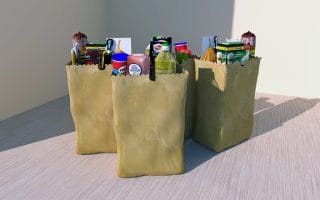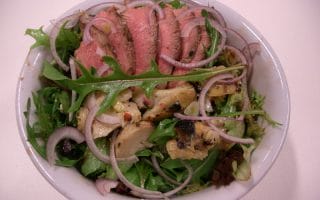 When you put leftovers in the refrigerator, you probably don’t consider how long they’ll remain edible — maybe you eat them in time or you discover that they’ve gone bad.
When you put leftovers in the refrigerator, you probably don’t consider how long they’ll remain edible — maybe you eat them in time or you discover that they’ve gone bad.
That pattern may change after you read the following guide to the length of time that different foods can stay fresh in the ‘fridge — based on Food and Drug Administration recommendations.
Life of Leftovers in the Refrigerator
Bacon: one week
Barbecue Sauce (opened): four months
Butter: one to two months
Cheese (soft): one to two weeks; (shredded): one month; (hard, opened): up to six months
Chicken (cooked): three to four days; (fried) three to four days
Eggs (cooked): three to four days; (fresh): three to five days
Fish (smoked): two weeks
Gravy or Meat Broth: one to two days
Egg Salad: three to five days
Ground Turkey: one to two days
Guacamole: three to four days
Ham (cooked, whole): one week; (half or sliced): three to five days
Hamburger (raw): one to two days
Hot Dogs (opened): one week; (unopened): two weeks
Hot Sauce (opened container): about six months
Fruit Punch or Juice (in a carton or bottle): seven to 12 days
Salsa (opened): one month
Sausage (raw): one to two days; (smoked): one week
Seafood (cooked): one to two days
Shrimp, Scallops or Squid (fresh): two weeks
Soup: three to four days
Soy or Teriyaki Sauce (opened): one month
Spaghetti Sauce (opened): four days
Steak: three to five days
Store-Cooked Meals: three to four days
Turkey (cooked): one to two days
Veal: one to two days
Vegetables (cooked): three to four days
Wine (opened): one to three days
Yogurt: one week
Jackie Cohen is an award winning financial journalist turned turned financial advisor obsessed with climate change risk, data and business. Jackie holds a B.A. Degree from Macalester College and an M.A. in English from Claremont Graduate University.






Comments